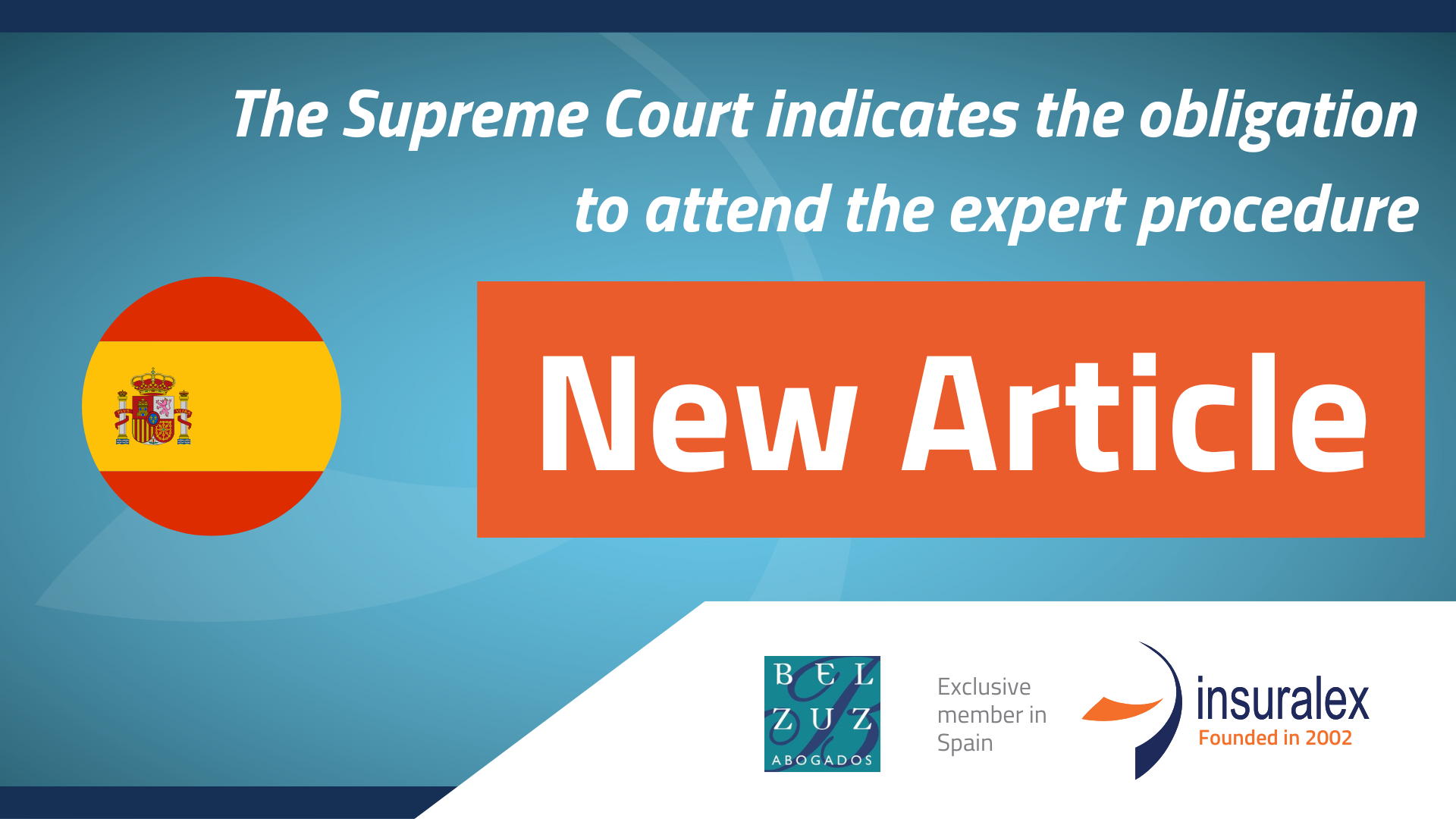
As lawyers specialising in Insurance Law, we have seen large claims in which, once the claim has been recognised by the insurer, there have been severe discrepancies regarding the amount of the damage.
In order to avoid litigation referring only to the amount of the damage, the LCS has provided for a procedure in its article 38 to resort to an out-of-court procedure for the resolution of discrepancies by means of the issuance and assessment of an independent third expert.
In this regard, prior to this procedure, there is a conciliation in which the experts of each of the parties issue an opinion, being, in the event of disagreement between these experts of the party, when this appointment of the independent third party is activated.
On this, the opinion issued by this expert will be unassailable unless the insurer, within thirty days or the insured, within one hundred and eighty days, challenges it in court.
Given that it is an alternative dispute resolution procedure, there could be reasonable doubt as to the obligation to resort to it insofar as, being an alternative dispute resolution procedure, the parties could understand that the judicial route is the only appropriate one to settle said dispute.
However, the fact that this procedure has characteristics of ADR, as the doctrine has reiterated, it is mandatory to resort to it when the discrepancy between insurer and insured is based solely on the quantification of the damage suffered.
The Judgment of the Civil Chamber of the Supreme Court no. 161/2025 of 30 January, rec. 646/2020 (ECLI:ES:TS:2025:442), following the jurisprudential criterion, has indicated that, if the requirements for the application of this article 38 LCS are met, the parties must imperatively resort to said procedure:
2.-The obligatory nature (or not) of the expert procedure provided for in art. 38 LCS has been repeatedly analysed by the jurisprudence of this chamber, for example, to cite the most recent, in judgments 536/2016, of 14 September; 328/2019, of 6 June; and 575/2021, of 26 July. As a general rule, when the necessary conditions for its use are met, the expert procedure of art. 38 LCS is mandatory, in such a way that, if the requirements established by law for the expert procedure to be the appropriate one to settle a dispute between the parties are met, neither the insurer nor the policyholder/insured are free to decide that they prefer to go to court for its resolution.
Thus, this Judgment also demarcates what type of matters would be excluded from the procedure, noting that neither proceedings in which the insurer has refused a claim will be resolved, nor those derived from civil liability insurance nor questions of a legal nature:
The experts referred to in article 38 LCS are the appraisers or appraisers of claims that occur in the field of property insurance. And the controversies or discrepancies that must be resolved refer only to the quantification of the damage caused by the loss to the insured goods and rights. On the contrary, experts are not called upon to resolve discrepancies that refer to the “existence of the claim, its coverage by the insurance policy, and the circumstances that may have influenced its origin or result” (judgment 63/2008, of 28 January). As a result, the following controversies should not be resolved by means of the expert procedure of art. 38 LCS:
(i) Cases in which the insurer has refused the claim reported in a timely manner by the insured.
(ii) Claims arising from civil liability insurance, since there is really no dispute between the insured and the insurer about the value of the damages to be compensated.
(iii) Questions of a legal nature on which the parties do not agree (by definition, experts cannot agree in law, so they must limit their intervention to the resolution of disputes relating to issues of pure assessment of damages). In the words of the aforementioned judgment 575/2021, of 26 July, this binding and indisputable effect “does not extend to matters unrelated to the quantification of the benefit owed by the insurer and does not prevent the insurer [the insurer] from questioning the existence of the claim, its coverage by the insurance policy, and the circumstances that could influence its origin or outcome”. Therefore, the judgment itself concludes that it is excluded “with respect to issues concerning the interpretation of the insurance contract and determination of the scope of the coverage subscribed, given its strictly legal nature and not of mere settlement of the damage”.
In this way, the Judgment concludes by explicitly pointing out the necessary obligation of the parties to settle their disputes by means of the expert procedure of article 38 LCS when the claim is accepted by the insurer but the discrepancy is limited to the valuation of assets and rights subject to coverage.
“We could affirm that the parties to the insurance contract are necessarily obliged to settle their disputes by means of the expert procedure regulated in article 38 LCS in all those cases in which a claim has been accepted by the insurer of a damage insurance, but there are discrepancies between the insurer and the policyholder/insured only in terms of the valuation of the assets and rights subject to coverage. And they are not when their discrepancy exceeds the mere quantification of the damage.”
In conclusion, this criterion on the part of the Supreme Court is not surprising, not only because this procedure is specifically provided for in the LCS, but also because of the general legislative trend in this matter that has been observed.
From the Insurance Law Department of Belzuz Abogados, we are at your disposal to analyse your civil liability and insurance problem in the most professional, efficient and solvent way.
Mikel Reyna Escalera
Abogado Senior -Departamento de Seguros
España
BELZUZ ABOGADOS SLP, Insuralex´s Exclusive Member in Spain and Portugal



